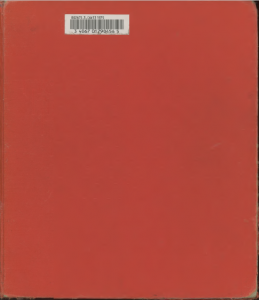Previous posts in this series:
- Are the “Rulers of the Age” in 1 Cor. 2:6-8 Human or Spiritual? – the sea change
- Who Killed Christ? Human rulers and/or angelic rulers. Addressing 1 Cor 2:6-8.
- Who Crucified Jesus – Men or Demons? Continuing Miller’s Study of 1 Cor 2:6-8
- What they used to say about Paul’s “rulers of this age” who crucified the “lord of glory”
- Seven problems for the view that Paul’s “rulers of this age” were human authorities
(Related topic: “Demons Crucified Jesus ON EARTH”. . . . )
–o0o–
1 Corinthians 2:6-10
(6) But we speak wisdom among the perfect, wisdom which does not belong to this age nor to the rulers of this age, who are being destroyed. (7) But we speak God’s wisdom in a mystery, the hidden wisdom which God foreordained betöre the ages with a view to our glory. (8) This wisdom none of the rulers of this age knew, for if they had known it, they would not have crucified the Lord of glory.
(9) But as it is written: ‘Things which eye has not seen nor ear heard, which did not enter into the heart of man, things which God has prepared for those who love him’. (10) But to us God has revealed (these things) through the Spirit.Translation by Judith Kovacs (see below)
(Contrary to what I learned years ago in a certain church, in Kovacs view, the new revelation of verses 9-10 refers to the cross as the pivotal turning point in history and the grand cosmic drama: from the that moment on the hidden ruling powers of this age were in the process of being conquered and humanity would soon be released from their clutches and this evil age would pass away.)
–o0o–
Charles Kingsley Barrett, 1968, 1971
Barrett, C. K. 1971. A Commentary on the First Epistle to the Corinthians. 2nd ed.. Black’s New Testament Commentaries. London: Black. p. 70-72

C.K. Barrett saw the same “rulers of this age” being condemned in
- John 12:31 Now is the time for judgment on this world; now the prince of this world will be driven out.
- John 14:30 I will not say much more to you, for the prince of this world is coming. He has no hold over me
- John 16:11 the prince of this world now stands condemned.
The wisdom that these rulers do not know is the wisdom of this “evil age” (Gal 1:4), a wisdom that sets itself against God. As far as men are concerned it is a “man-centred” wisdom (as Paul has discussed in the preceding passages). Yes, it is a human wisdom, but….
“He calls the evil powers ‘archontas‘. If these themselves were ignorant how much more were also the men by the intermediary of whom the demons crucified the Lord.” —
Héring, Jean. 1962. The First Epistle of Saint Paul to the Corinthians. Translated by A. W. Heathcote and P. J. Allcock. Epworth Press. p.16
But more than men are concerned. It is the wisdom of the rulers of this age (compare verse 8; and 2 Cor. iv. 4). Paul, like very many of his contemporaries, conceived the present world-order to be under the control of supernatural beings, often represented by or identified with the planets, or other heavenly objects. These (except in so far as the power of God was available to overthrow or hold them in check) controlled the destiny of men. The wisdom they themselves entertained, and perhaps communicated to men, was naturally of the kind described. (p. 70)
Paul understood that these rulers were in the process of “being brought to nothing”.
Up until now I have made much of the difference between the hidden wisdom being about God’s plan for salvation through the cross on the one hand and the identity of Jesus as God’s Son and Christ by whom salvation was to be wrought. So I find myself pulled up when I read C.K. Barrett writing:
None of the rulers of this age . . . knew . . . this true, divine wisdom. Either: they did not understand God’s plan for the salvation of the world, based as it was on the cross; or: they did not recognize Christ crucified as the agent chosen by God for the world’s salvation. These two interpretations are distinguishable, but the difference between them is not great. (p. 71)
Of course, Christ is himself the wisdom of God according to 1 Cor. 1:24 and 1:30.
Barrett treats the “rulers of this age” as the supernatural powers controlling the events of this age, at least up till the time of the crucifixion, but acknowledges that a few others at that time differed. One of these was J. B. Lightfoot who held them to be earthly rulers such as Pilate and Caiaphas. Barrett responds:
This view is possible in verse 8 but much less likely in verse 6; and the gospels represent the ministry, and not least the death, of Jesus as a record of conflict with supernatural powers. On this question, see Héring, . . . . Man may, however, properly recognize himself in the inability of the world-rulers to see God’s wisdom in the cross. (p. 72)
We have seen this argument before, that the gospels, or at least the gospel of Mark, presents Jesus’ conflicts on earth as a contest between supernatural powers. When we do turn to Héring as Barrett suggests we find the source of Barrett’s own understanding of “rulers of this age”.
To understand these verses we must first ask who are the ‘rulers of this age’ (‘hoi archontes tou aionos toutou“). With Origen and Theodore of Mopsuestia and in contradistinction to Chrysostom we think that this expression must be linked with ‘archon tou kosmou toutou‘ (Jn 12:13, 14:30, 16:11), where there is no question that supernatural powers are meant. If this is so, there is then here no reference to Pontius Pilate or the Roman emperors, but to powers of the invisible world. This seems to be supported by:
- the parallel text of Colossians 2:15, where Christ triumphs by the Cross over hostile powers, called ‘archai kai exousiai’;
- as well as by Romans 8:38, where the ‘archai‘ (along with other supernatural powers) are mentioned as being likely to hinder the work of Redemption;
- the fact that the Roman Empire was looked upon by the Apostle as a providential and beneficent power (Rom 13 1-7);
- possibly also by the use of the verb ‘katargein‘ (2:6), which is sometimes a technical astrological term for the nullifying of an astral influence by a superior power;
- the fact that they diffuse a wisdom, i.e. teaching, which is in no way characteristic of the political powers.
We are concerned, then, with astral powers, directly related to the ‘stoicheia’ = ‘the elements’ of Galatians. There is nothing to show that the Apostle ranked these among the beings which were evil by nature, like the ‘daimones‘ of 10:20-22 or like Satan or Beliar. All we are told is that they were opposed to the Gospel. But they would not have been, had they possessed divine wisdom. For in such a case, they would have known that it was not in their own interests to crucify the Lord, since his death struck a terrible blow at their rule (Col 2:15). Some scholars further think that they did not even recognize the Lord, recalling in this connection the gnostic (oriental) myth of a god who deceived the ‘devil’ by hiding his identity. (On this see. . . Ignatius, Ep. to the Ephes. 19; as well as the Ascension of Isaiah X.11ff)
(Héring, pp. 16f)
Following Héring Barrett notes that the expression “lord of glory” is found most commonly in 1 Enoch:
22:14 Then I blessed the Lord of glory and said: ‘Blessed be my Lord, the Lord of righteousness, who ruleth for ever.’
25:3-7 And he answered saying: ‘This high mountain which thou hast seen, whose summit is like the throne of God, is His throne, where the Holy Great One, the Lord of Glory, the Eternal King, will sit, when He shall come down to visit the earth . . . . Then blessed I the God of Glory, the Eternal King, who hath prepared such things for the righteous, and hath created them and promised to give to them.
27:3-5 In the last days there shall be upon them the spectacle of righteous judgement in the presence of the righteous for ever: here shall the merciful bless the Lord of glory, the Eternal King. In the days of judgement over the former, they shall bless Him for the mercy in accordance with which He has assigned them (their lot).’ Then I blessed the Lord of Glory and set forth His glory and lauded Him gloriously.
63:2 Blessed is the Lord of Spirits and the Lord of kings, And the Lord of the mighty and the Lord of the rich, And the Lord of glory and the Lord of wisdom
75:3 For the signs and the times and the years and the days the angel Uriel showed to me, whom the Lord of glory hath set for ever over all the luminaries of the heaven, in the heaven and in the world, that they should rule on the face of the heaven and be seen on the earth, and be leaders for the day and the night, i.e. the sun, moon, and stars, and all the ministering creatures which make their revolution in all the chariots of the heaven.
| Not mentioned by either Barrett or Héring (unless I have missed something) is the association in 1 Enoch of the Lord of Glory with both wisdom and spiritual rulers of the earth.
It is difficult to avoid bringing these two associations in to the first two chapters of 1 Corinthians, and especially to 1 Cor 2:6-8. |
–o0o–

Hans Conzelmann, 1975
Conzelmann, Hans. 1975. 1 Corinthians: A Commentary on the First Epistle to the Corinthians. Edited by George W. MacRae. Translated by James W. Leitch. Hermeneia. Philadelphia: Fortress Press. p. 61
Conzelman acknowledges those who disagree with his view:
The question whether the άρχοντες, “governing powers,” are demons or political powers has long been in dispute.44 The mythical context suggests the interpretation demons,45 and so also does the solemn predication των καταργονμινών, “which are being brought to nothing.”46 They are the minions of the “god of this aeon” (2 Cor 4:4).47
–o0o–
Judith Kovacs, 1989
Continue reading “Further older arguments for Paul’s “rulers of this age” being spirit powers”
